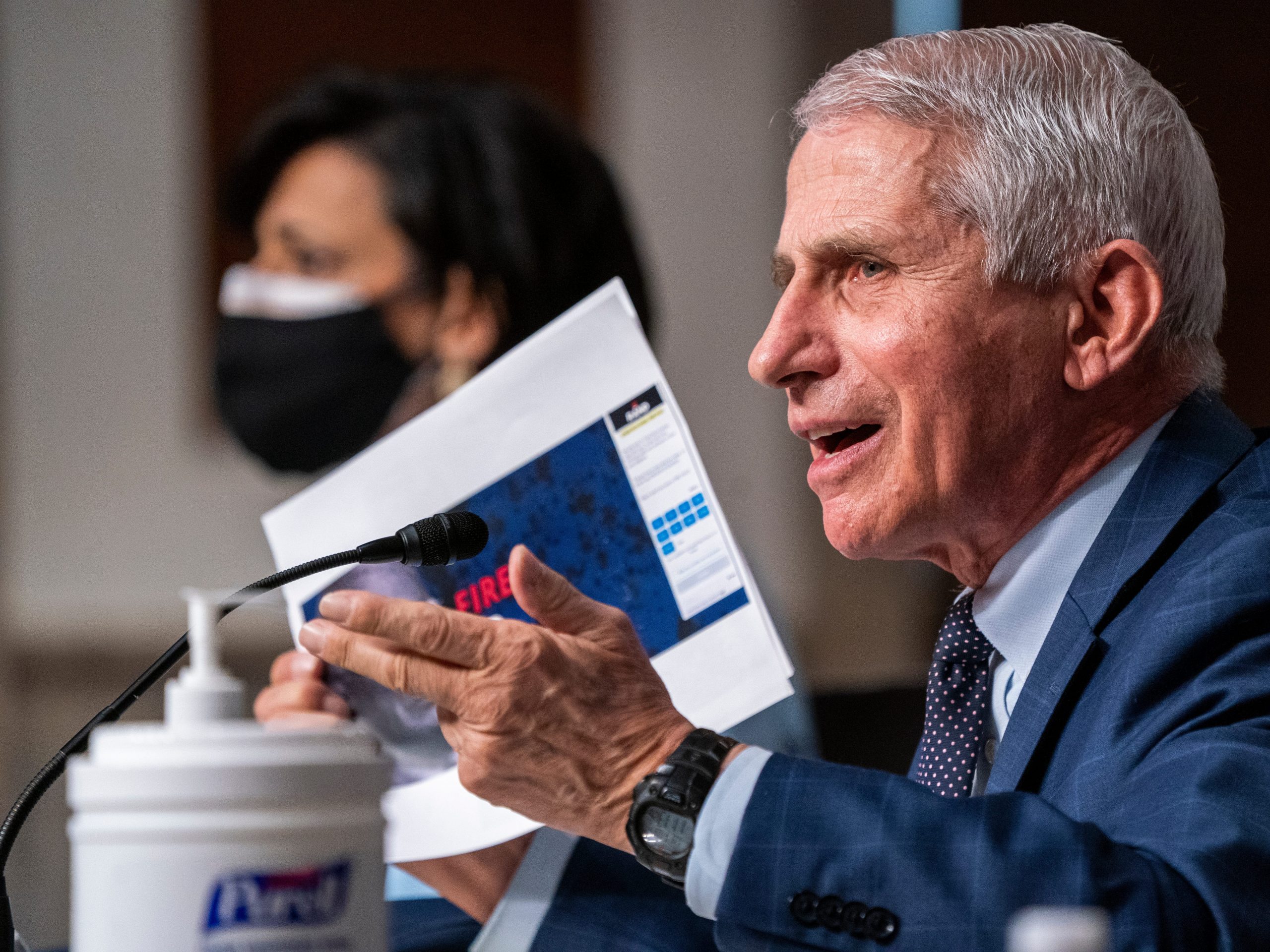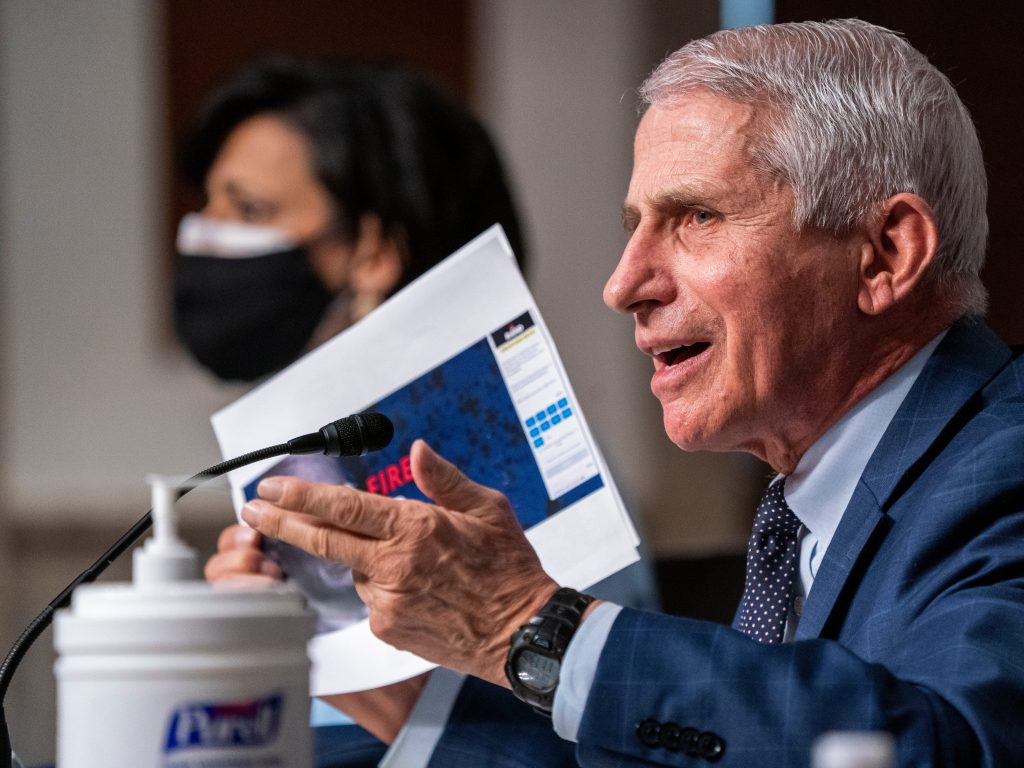
- Dr. Anthony Fauci is as "confident as you can be" that Omicron cases will peak soon
- Fauci cautioned against being "overconfident," but told ABC's This Week "things are looking good."
- Cases across the north-east and upper mid-west have started to "come down rather sharply," he said.
Dr. Anthony Fauci has said that the number of Omicron cases in the US could peak soon and start to fall.
When asked Sunday on ABC's 'This Week' whether he was confident that cases could could peak across the majority of states by mid-February, Dr. Fauci said he was "as confident as you can be."
"Things are looking good. We don't want to get overconfident, but they look like they're going in the right direction right now," he told the broadcaster.
Fauci, President Biden's chief medical advisor, said Omicron infections in states across the northeast and upper midwest had peaked and "started to come down rather sharply." Cases are still rising in some southern and western states, he added.
"But if the pattern follows the trend that we're seeing in other places, such as the north east, I believe that you will start to see a turnaround throughout the entire country," he told 'This Week'.
Fauci also referred to patterns in other countries, such as South Africa, where cases peaked at 37,875 on December 12, according to Johns Hopkins University. The country is now reporting nearly 2,000 new cases per day
According to Johns Hopkins University, the US is currently reporting around 204,000 new COVID-19 cases per day. The number of daily cases peaked at more than 1.3 million on January 10.
The Omicron variant, which accounts for the majority of COVID-19 infections in the US, is thought to cause a milder sickness than Delta, but can still lead to sickness and hospitalization. According to Oxford University's Our World in Data, more than 150,000 people in the US were in hospital with COVID-19 as of Friday.
Fauci admitted the "best case scenario" would be one where the virus does not "create a fear of severe outcomes," and stays below "an area of control."
He added: "Control means you're not eliminating it, you're not eradicating it, but it gets down to such a low level that it's essentially integrated into the general respiratory infections that we have learned to live with."
